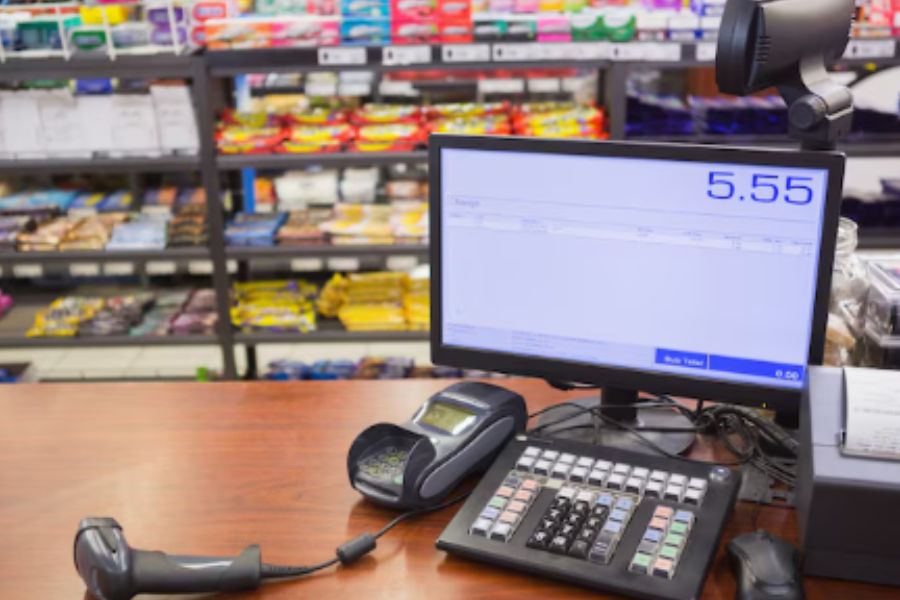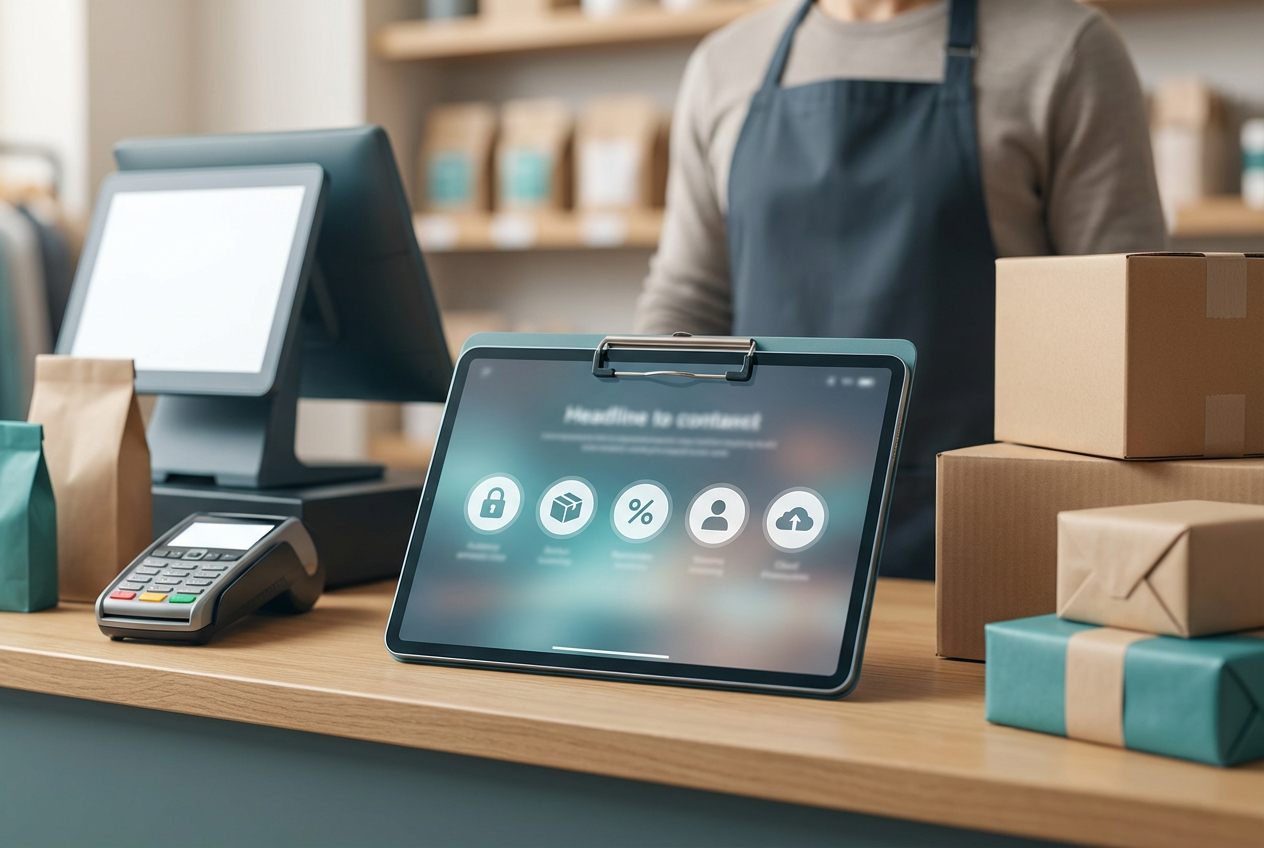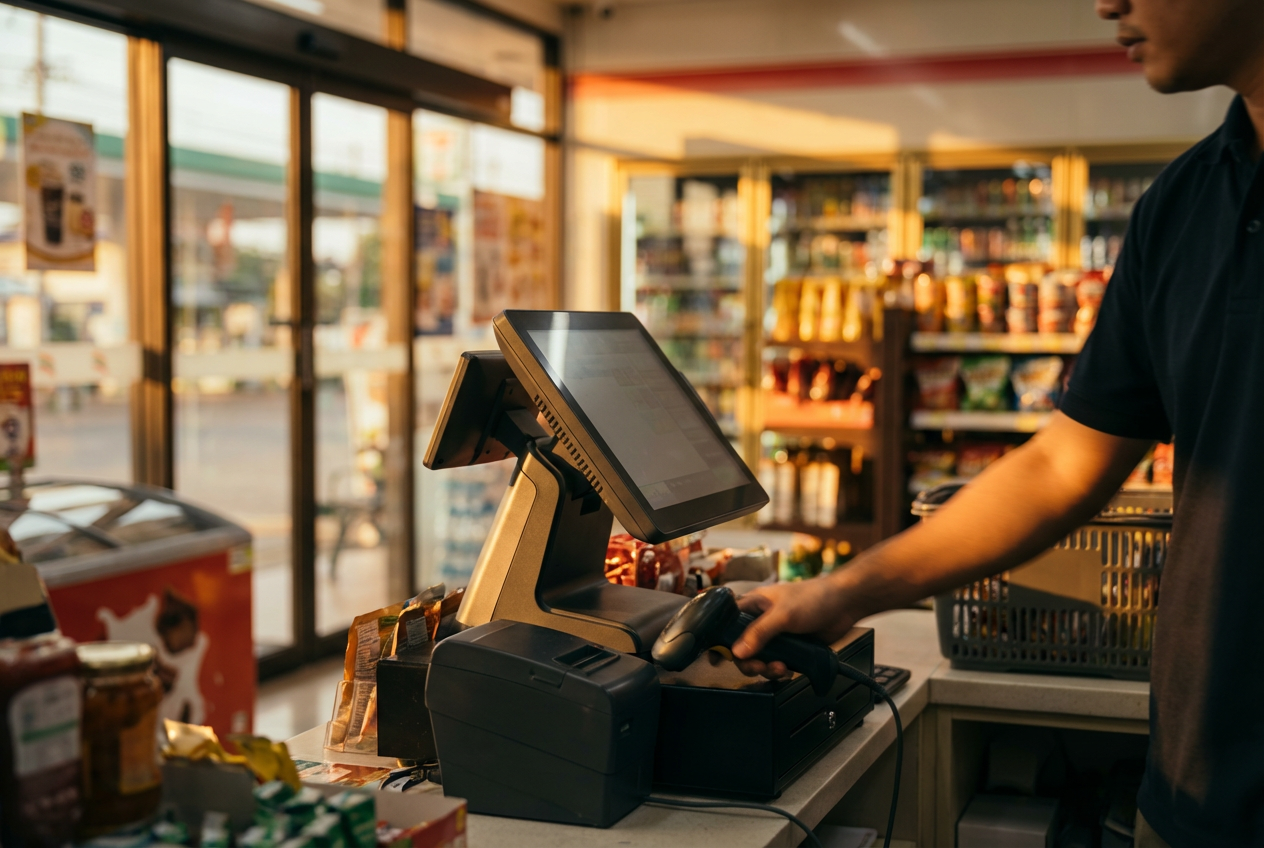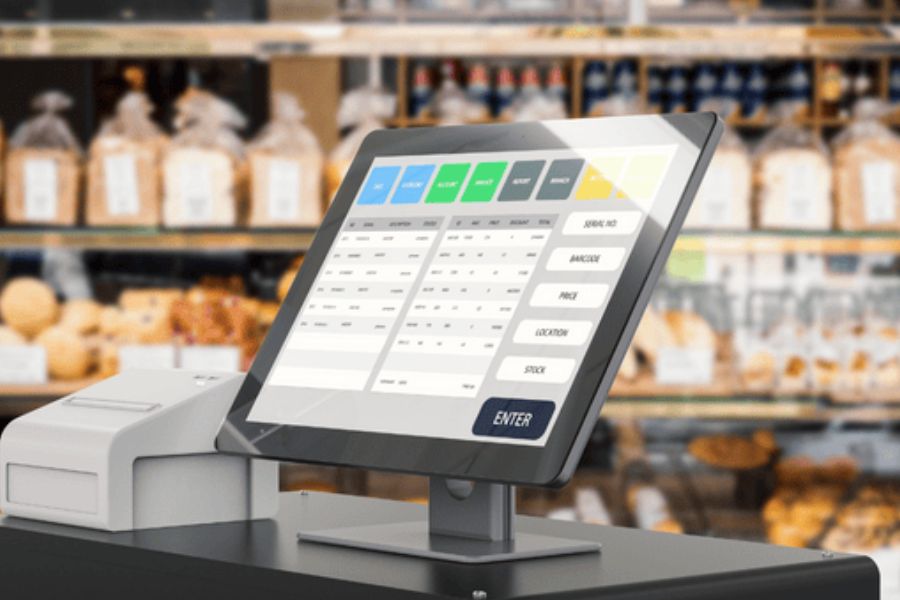Managing multiple store locations can be challenging, especially when tracking sales, inventory, and customer data across different outlets. Traditional methods often lead to inefficiencies, making it harder to maintain consistency and meet customer demand. A multi store POS system connects all locations under one platform, simplifying operations and ensuring real-time data synchronization. Unlike a standard POS, it provides centralized control, helping businesses simplify transactions, inventory, and customer management effortlessly. This article explores the key features of multi-store POS solutions and the benefits of an integrated system for businesses with multiple outlets. Discover how leading brands use this technology to stay ahead.
Highlights:
- A multi store POS system is important because it centralizes operations, simplifies inventory tracking, and supports consistent customer experiences across all locations.
- When selecting a multi store POS, consider factors like real-time inventory visibility, ease of scalability, integrated customer data, automation capabilities, and compatibility with your existing sales channels.
What is a multi store POS system?
A multi-store POS system is a point-of-sale system designed to help businesses manage multiple store locations from a single platform. It centralizes key operations like sales tracking, inventory management, and customer data, ensuring that all locations stay connected in real time.
With a multi-store POS, business owners and managers can monitor stock levels across different locations, transfer inventory as needed, and guarantee that pricing, promotions, and customer loyalty programs remain consistent. It also provides consolidated sales reports and analytics, making it easier to track overall business performance.
Why a Unified Multi Store POS System Matters
Managing Several Locations in One Place
A multi store POS system consolidates management across various retail locations, providing retailers with a unified view of operations. This centralized structure is particularly advantageous for businesses employing an omnichannel strategy, as it guarantees consistent oversight across all stores. Managers can access performance metrics, sales data, and operational reports from a single dashboard, facilitating trend identification and strategic decision-making aligned with overall business objectives.
Such a system also improves communication between stores. For instance, if one location faces increased demand for a particular product, the system enables swift stock transfers from other stores, promptly addressing customer needs. This agility improves the customer experience by reducing instances of stockouts or delays. Moreover, keeping all stores connected under one system cuts down on miscommunication and lowers the chance of operational errors.
A unified system also simplifies staff training. Employees moving between locations use the same interface and processes, reducing onboarding time and keeping service consistent.
Keeping Track of Stock Without Delays
Inventory accuracy is a recurring challenge for retailers with multiple locations. A multi store POS system provides real-time visibility into inventory levels across all locations, allowing retailers to track stock in a way that traditional systems cannot. This capability is essential for implementing a robust omnichannel retailing strategy, as it enables businesses to synchronize inventory between physical stores and online platforms.
For example, when a customer places an online order for in-store pickup, a real-time inventory system can instantly confirm product availability at the nearest location. This not only improves the customer experience but also helps prevent overstocking or running out of popular items. Additionally, by analyzing sales trends, retailers can adjust inventory levels accordingly, ensuring efficient operations and satisfied customers.
The financial impact of inventory mismanagement is substantial. A study by the IHL Group projects that inventory distortion—encompassing both out-of-stocks and overstocks—will cost retailers globally approximately $1.77 trillion in 2023. A centralized POS platform reduces this risk by providing accurate, up-to-date inventory data across all sales channels.
It also supports features like automated low-stock alerts and reorder triggers, reducing manual checks and keeping stock replenishment timely.
►►► Optimal solution set for businesses: Multi store POS, Next-gen POS, Inventory Management Software (MSI), Self Service, Automation, Backorders


Building Stronger Customer Relationships
Retailers need more than just products and price to stay competitive—they need to understand their customers. A multi store POS system combines customer data from every location into a single database, giving retailers a full view of buying patterns, preferences, and behaviors.
With this data, retailers can implement targeted marketing campaigns and personalized promotions that resonate with individual customers. This level of personalization fosters a deeper connection between the brand and the consumer, driving customer loyalty and encouraging repeat purchases. Moreover, providing consistent service across all channels – in-store, online, or mobile – reinforces brand loyalty.
The impact of personalization on customer loyalty is significant. In just one year, the percentage of consumers willing to abandon a brand due to a lack of personalization jumped from 45% in 2021 to 62% in 2022. A multi store POS system gives retailers the tools to meet this expectation and stay relevant.
Beyond marketing, the system can track loyalty points and purchase history across locations, making rewards programs more effective and easier to manage.
Increase Efficiency and Cut Costs
Managing several locations comes with operational pressure. A multi store POS platform simplifies routine tasks like sales tracking, restocking, and scheduling. Automating these workflows reduces manual input, shortens turnaround times, and cuts the risk of mistakes.
Real-time sales reports show which products are performing and which need reevaluation. With this insight, retailers can adjust stock and shift marketing efforts to meet actual demand.
Reducing repetitive admin work also lowers overhead. Teams spend less time on data entry and more time on customer interaction, product strategy, or local promotions. The result is leaner operations and better resource allocation.
The system also standardizes processes across locations, making compliance and reporting more straightforward, especially for chains operating in different regions.
Preparing for Business Expansion
Scaling a retail business requires systems that adapt without disruptions. A multi store POS solution supports expansion by keeping all locations connected under a single structure. Adding a new store becomes a matter of configuration, not a full rebuild.
This connectivity supports faster rollouts, consistent processes, and unified reporting. Retailers can enter new markets or launch new product lines without compromising operational stability.
Access to cross-location data also reveals which products perform best in specific regions. Retailers can then refine their strategies based on real demand, improving both customer satisfaction and profitability.
The platform also supports remote access, so decision-makers can monitor performance and make changes without being tied to a specific location.
Choosing the multi store POS system for Your Business
Features
A powerful multi store POS system should simplify complex operations while improving efficiency. Consider these features:
- Centralized Inventory Management: Managing stock across multiple locations can be challenging without a unified system. A good POS platform provides real-time inventory tracking, automatic stock updates, and seamless transfers between stores. It should also integrate with your eCommerce channels to prevent stock discrepancies.
- Multi-Location Reporting & Analytics: A system with strong reporting capabilities helps you monitor sales trends, inventory movement, and customer behavior across all locations. Look for a POS that provides real-time data insights, allowing you to make informed decisions quickly.
- Omnichannel Sales & Customer Experience: Customers expect a seamless experience whether they shop in-store, online, or via mobile. A multi-store POS should synchronize sales, inventory, and customer data across all channels, making it easy to provide services like click-and-collect and personalized promotions.
- Employee Management & Role-Based Access: Managing staff across different locations requires a system that supports role-based permissions, shift tracking, and performance monitoring. This guarantees security while helping you oversee store operations efficiently.
- Integrated Customer Relationship Management (POS CRM): A built-in CRM helps track customer purchase history, preferences, and loyalty rewards. Personalized promotions and targeted marketing campaigns become easier, strengthening customer retention.
Scalability
Your multi store POS system should support business expansion without disruptions. It should have these scalability factors:
- Easy Store Expansion: Adding new locations should be straightforward, without needing a complete system overhaul. Choose a POS that allows you to integrate new stores, staff, and inventory seamlessly.
- Cloud-Based vs. On-Premise: Cloud-based systems provide flexibility, automatic updates, and remote management, making them ideal for growing businesses. On-premise solutions, while providing more control, often require manual updates and maintenance.
- Smooth Integrations: A scalable POS should connect effortlessly with accounting software, eCommerce platforms, marketing tools, and payment gateways. This guarantees smooth operations without manual data transfers.
- Customization & API Support: Business needs evolve, and a customizable POS system with API access allows for tailored solutions that adapt as your business grows.
Integration
Your POS system should work seamlessly with the other software you rely on. Key integrations to consider include:
- eCommerce POS Platforms (Shopify, Magento, BigCommerce) – guarantees real-time inventory sync and a unified shopping experience.
- Accounting Software (Xero, QuickBooks) – Automates financial tracking and tax reporting.
- Payment Processors (Stripe, PayPal, Square) – Support various payment methods for customer convenience.
- Marketing & CRM Tools (HubSpot, Mailchimp) – Helps personalize promotions and strengthen customer relationships.
A system with open API access is ideal, allowing for custom integrations as your business grows.
Customer Service
Technical issues can disrupt sales and frustrate customers, making 24/7 support a must-have feature. Consider:
- Availab/ility – Does the provider provide round-the-clock support via phone, email, or live chat
- Response Time – Fast issue resolution minimizes downtime and lost revenue.
- Training & Resources – Look for video tutorials, knowledge bases, and onboarding assistance.
A provider with dedicated account managers can also provide personalized support as your business scales.
Price
Multi store POS system pricing varies depending on features, deployment type, and scalability. Evaluate:
- Upfront Costs – Hardware (registers, barcode scanners) and setup fees.
- Monthly Subscription Fees – SaaS-based POS systems often have tiered pricing based on store count and features.
Transaction Fees – Payment processing charges per sale, which can add up over time.
Hidden Costs – Extra fees for integrations, additional users, or premium support.
Compare different vendors and choose one that provides the best balance between features and cost without compromising functionality.
How ConnectPOS Supports Multi-Store Retailers
ConnectPOS supports retailers to manage stores across different locations while keeping everything organized. Built on MACH architecture, it supports expansion without complications. The cloud-based system allows real-time data updates, keeping operations smooth across all stores.
- Scaling Without Disruptions: Retailers can add new stores without starting from scratch. The system adapts to new locations, keeping the same structure across all branches while allowing flexibility where needed.
- Smoother Daily Operations: Automated workflows handle tasks like discount rules, checkout processes, and staff permissions per store. Custom reports and analysis highlight performance trends, helping businesses refine sales, inventory, and customer engagement.
- Personalized Shopping Without the Guesswork: A shared customer database allows businesses to understand shopping habits across all stores. Payment options remain flexible, with support for split payments and contactless transactions. Customers can place orders at one location and pick them up elsewhere.
- One System for Everything: Inventory stays updated across online and physical stores without manual tracking. Performance reports bring all store data together, making it easier to plan ahead. Setting up new stores takes less effort since existing configurations can be applied instantly.
- Works with the Tools You Already Use: Multi store POS ConnectPOS connects with eCommerce platforms like Shopify, Magento, and BigCommerce, as well as accounting tools like Xero and QuickBooks. CRM and ERP integrations bring everything under one system, keeping business operations on track.
FAQs: Multi store POS System
How does a multi store POS system help businesses grow?
Expanding to new locations becomes easier when operations stay connected. Businesses can set up new stores while maintaining consistency in pricing, inventory, and promotions. The system adapts to different store sizes, helping brands scale efficiently.
Is a multi store POS system suitable for both physical and online stores?
Yes, businesses operating both physical and online stores benefit from a system that syncs data across all channels. It helps maintain accurate stock levels and enables a true omnichannel shopping experience.
How does it help with fraud prevention?
Security features such as access controls, transaction logs, and automated alerts help prevent theft and fraud. Managers can monitor sales activities remotely to spot unusual patterns.
What industries benefit the most from a multi-store POS?
Retail chains, franchises, grocery stores, fashion boutiques, and specialty stores benefit the most. Any business managing inventory across locations can improve operations with a centralized system.
Conclusion
A multistore POS system gives retailers the tools to manage multiple locations with accuracy, speed, and consistency. It centralizes sales, inventory, customer data, and staff operations in one platform, making day-to-day tasks easier to control and scale. With real-time insights and automation, businesses can reduce errors, cut costs, and respond faster to demand. This setup supports growth without adding complexity, helping retailers stay efficient and focused as they expand.
Leading brands are already harnessing this technology to gain a competitive edge. Take your business to the next level with ConnectPOS – a smart, scalable solution designed for modern retailers. Contact us to know how it can transform your operations today!
►►► Optimal solution set for businesses: Shopify POS, Magento POS, BigCommerce POS, WooCommerce POS, NetSuite POS, E-Commerce POS




